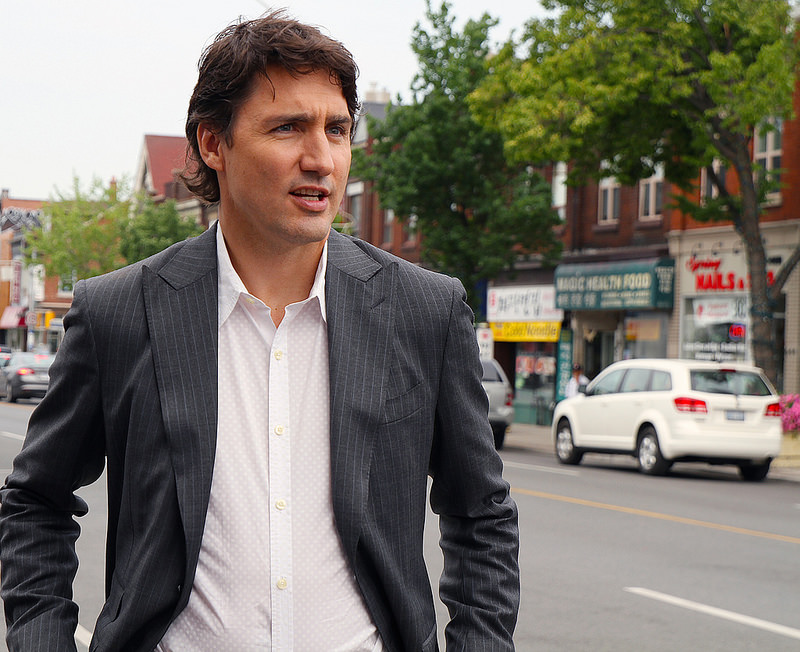Earlier in November, Liberal Party Leader Justin Trudeau gave a speech to the Canadian Council for Public-Private Partnerships where he promoted Public-Private Partnership (P3s) as a solution to infrastructure needs. The Harper government has also been promoting P3s in infrastructure projects such as water and wastewater and transportation through the P3 Canada Fund. A P3 model is also being planned for a new Saskatchewan Hospital in North Battleford.Harper’s P3 Fund is problematic because it requires a municipality to enter into a P3 agreement with a for-profit company if they want federal funding for infrastructure projects. P3s are more costly and can increase rates, decrease the quality of a service, result in job cuts and eliminate accountability and transparency. P3 contracts are lengthy contracts — often lasting up to 30 years — and are frequently negotiated behind closed doors. They often violate principles of local democracy. Moncton, New Brunswick learned these lessons with its P3 agreement.
And now it looks like Trudeau is going down that road too. In his speech he stated, “The answer is clear: We commit to investing more in badly needed infrastructure projects. We need to set a new standard, and we start by doing more of what we’re here to do today: working together. Working with provinces and cities to make sure we’re getting our priorities straight. Because once we commit to investing, we also need to ensure we are targeting our funding correctly. So private capital will obviously be important because it will enhance — and complement — increased federal investments.”
He adds, “The government needs you to help in identifying new and more innovative mechanisms to finance and build public infrastructure.”
While municipalities are in need of infrastructure, essential services should remain under community control and governance.
In 2011, Abbotsford rejected a P3 model. Saint John, New Brunswick and Regina, Saskatchewan are pursuing P3s for their drinking water and wastewater systems despite a global trend to remunicipalize water systems.
Trudeau also points to First Nation communities as an opportunity for P3s: “We can also fix the shameful lack of investment in our First Nations communities, because this isn’t just about laying new roads or putting down tracks; it’s about all of us, the country we want to live in, and the one we want to pass down to our children.”
The Safe Drinking Water for First Nations Act, passed last year, sets needed standards but failed to adequately consult indigenous communities and allocate any funding, creating the conditions where some communities will be required to enter into P3 contracts. While the water situation in First Nation communities is abhorrent, First Nation communities must give free, prior and informed consent on how their water and wastewater services is managed and should not be required to enter into P3 agreements if they want to access federal funding.
P3s can lead to the gradual privatization of essential public services. With investor-state rules in trade agreements like CETA (the Canada-EU Comprehensive Economic and Trade agreement), municipalities and Indigenous communities will have a hard time ending a P3 agreement — even if the service is poor — without the Canadian government being the target of a free-trade lawsuit. Read more in the new report Trading Away Democracy: How CETA’s investment protection rules threaten the public good in Canada and the EU, recently released by the Council of Canadians and more than a dozen European and Canadian organizations.
What’s also concerning is earlier in his speech he mentioned the budget surplus without noting that that surplus has come from all of Harper’s public servant and program cuts which are roughly $14 billion annually: “A case in point: that fiscal update is expected to herald a surplus for the first time in many years of this Conservative government’s tenure. The question that should be asked is this: What should that surplus be invested in?”
The Conservative government cut billions from protecting the safety of our lakes and rivers, health care, support programs for our veterans, food safety and many other areas critical to Canadians and indigenous people. The Council of Canadians urges Justin Trudeau to take action to bring back these programs and public sector jobs.
P3s are not the solution. If Trudeau continues to go down this path, he will be no different than Harper in this respect. The Council of Canadians is urging Justin Trudeau to reject a P3 Canada Fund. The Council also urges the New Democratic Party and the Green Party to differentiate themselves from Trudeau and Harper by rejecting P3s and commit to funding infrastructure and public services that keeps them under community control.
Send a letter to federal party leaders urging them to develop a national water policy that includes a national public water infrastructure fund and invests in water and wastewater infrastructure, particularly in First Nations communities.
Stay tuned for more blogs on the federal parties’ positions on water issues leading up to the election next year!
Photo: Alex Guibord/flickr



